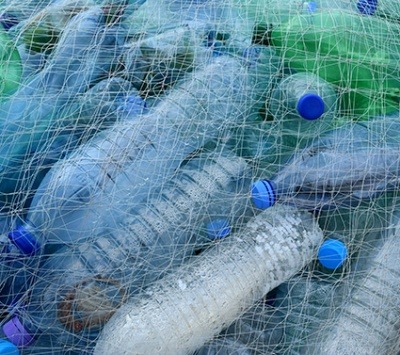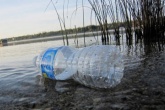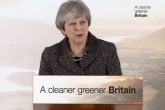UK Plastics Pact aims to transform plastics industry by 2025
A new wide-ranging UK Plastics Pact has been launched today (26 April), which will see a range of businesses from across industry commit to eliminating ‘unnecessary’ single-use plastic packaging by 2025.
Launched today by the Waste and Resources Action Programme (WRAP) and the Ellen MacArthur Foundation, who announced the plans back in January, the Pact aims to spur collaboration throughout the entire plastics value chain, working with government and non-governmental organisations (NGOs) to transform the plastic packaging system in the UK and keep plastic in the economy and out of the ocean.
So far 42 businesses have signed up to the Pact, including major food, drink and non-food brands, manufacturers and retailers, such as Sainsbury’s, Tesco, Coca-Cola European Partners and Novamont, right through to plastic reprocessors and packaging suppliers. These members are responsible for over 80 per cent of the plastic packaging on products sold in UK supermarkets. An additional 16 other organisations, including the Bio-based and Biodegradable Industries Association (BBIA), the ESA, the British Plastics Federation (BPF) and the Industry Council for Packaging and the Environment (INCPEN), have also shown their commitment to the Pact.

Members are committed to achieving the following by 2025:
- Eliminating problematic or unnecessary single-use plastic packaging through redesign, innovation or alternative delivery models (such as reuse)
- 100 per cent of plastic packaging to be reusable, recyclable or compostable
- 70 per cent of plastic packaging effectively recycled or composted
- 30 per cent average recycled content across all plastic packaging
The first of its kind in the world, it is hoped that the Pact will be replicated internationally to form a global movement for change, working towards the goals set out in the Ellen MacArthur Foundation’s New Plastics Economy initiative, which seeks to build a circular economy for plastics.
It is hoped that the Pact will stimulate innovative business models that reduce the total amount of plastic packaging in the UK economy, while also building a stronger recycling system that ensures plastic packaging can be effectively recycled, contributing to boosted UK recycling figures. First on the agenda for signatories to the Pact will be to identify priority projects that will deliver the greatest short- and long-term impacts.
To get the ball rolling and to ensure all stakeholders and citizens are aware of how they can help further the aims of the Pact, WRAP will be launching a communications campaign in the summer.
Commenting on the announcement, Environment Secretary Michael Gove, who will be speaking at the Pact’s launch event in London this evening alongside Dame Ellen MacArthur and WRAP CEO Marcus Gover, said: “Our ambition to eliminate avoidable plastic waste will only be realised if government, businesses and the public work together. Industry action can prevent excess plastic reaching our supermarket shelves in the first place. I am delighted to see so many businesses sign up to this pact and I hope others will soon follow suit.”
Gover said: “Together, we have a once-in-a-lifetime opportunity to rethink and reshape the future of plastic so that we retain its value, and curtail the damage plastic waste wreaks on our planet. This requires a wholescale transformation of the plastics system and can only be achieved by bringing together all links in the chain under a shared commitment to act. That is what makes the UK Plastics Pact unique. It unites every body, business and organisation with a will to act on plastic pollution. We will never have a better time to act, and together we can.”
MacArthur, founder of the circular economy charity the Ellen MacArthur Foundation, added: “We are delighted to launch this pioneering national implementation initiative with WRAP in the UK. This bold new pact will bring together businesses, policymakers and the public to create a circular economy for plastics that tackles the causes of plastics waste and pollution, not just the symptoms.
“Focusing on innovation, better packaging design and end-of-use systems will not only generate long-term benefits for the environment, but is also a huge economic opportunity. We encourage others around the world to help drive this momentum towards finding global solutions to what is a global problem.”
Plastics waste has cemented itself at the top of the public news agenda in recent times, thanks in large part to David Attenborough’s BBC series Blue Planet II, and the surge in public interest in plastics pollution has not gone unnoticed by the nation’s politicians. The government put plastics front and centre of its long-awaited 25 Year Environment Plan, committing the UK to eliminating ‘avoidable’ plastic waste by 2042, while the Chancellor Philip Hammond has announced a consultation on the use of the tax system to reduce the consumption of single-use plastics, and Environment Secretary Michael Gove revealed plans to implement a deposit return scheme (DRS) for plastic, glass and metal drinks containers in England, among a raft of other policies.

Industry welcomes Plastics Pact
The launch of the UK Plastics Pact has been resoundingly welcomed by the waste and resources industry. Commenting on the launch, the ESA’s Executive Director Jacob Hayler praised the Pact’s ambition, saying: “ESA has long been calling for improvements in packaging design and ensuring that materials collected for recycling have strong end markets supported by greater use of recycled content in new packaging and products. We are therefore delighted to support the Plastics Pact, which is extremely timely, given increased public concern about plastics leaking into the environment and the sustainable use of plastics.
“The targets set in the Pact are hugely ambitious and will require the whole supply chain working together constructively, with a clear plan for doing so, while complementing any legislative changes likely to feature in Defra’s forthcoming Resources and Waste Strategy. For the Pact to be successful it needs to deliver meaningful, tangible actions and ESA will support the Pact in this regard”.
Meanwhile, waste management companies have also welcomed the Pact, with Viridor’s Regulatory Affairs Director Dan Cooke commenting: “The Pact sets out clear UK ambitions for a more responsible and resource-efficient approach to plastics by all sectors, including our own, and provides the practical framework Viridor has been calling for so long.
“The UK uses 38.5 million plastic bottles every day, of which 15 million are still not recycled. And that’s just the bottles. This shows the scale of the opportunity that we all have to make a real difference.
“This Pact is a big step forward because it enables all stakeholders to direct their efforts to meaningful change on plastic. This includes consistent local authority collections to make it easier for households to put the right stuff in the right bin. The Pact also includes crucial commitments to design products for easier recyclability and to include more recycled content into the material being produced which will create the market demand to underpin the recycling process and greater investment in innovation.”
David Palmer-Jones, CEO of SUEZ recycling and recovery UK, added: “The Plastics Pact is a major step forward towards making environmental protection economically viable.
“We have been working with a number of global consumer goods companies signed up to the pact to ensure the valuable resources locked into complex laminated packaging can be recycled and reused and not wasted, or worse littered and polluting our rivers and oceans.
"Business is right to listen to consumer concerns about plastics pollution. We look to government to see through work underway to introduce progressive policies to extend producers’ responsibility for their products and packaging beyond consumption and help make Britain an international leader in resource reuse.”
Support was also forthcoming from the plastics industry itself, with Barry Turner, Plastics and Flexible Packaging Group Director for the British Plastics Federation, stating: “The BPF is delighted to support the UK Plastics Pact. We are committed to playing our part in leaving the environment in a better state for future generations. As the experts on plastics, we look forward to providing industry insight while continuing to develop the BPF’s Marine Litter Platform, with its objective of stopping plastic waste entering our oceans.”
BBIA Managing Director David Newman, whose organisation represents those companies producing alternatives to fossil-based plastics, said: “We’re keen to be part of this transformation of the way in which we produce, use and dispose of plastics in the UK. Indeed, the UK has the potential to become a significant player in the new generation of compostable plastics, which can be used in food packaging and help to drive up food waste collections and recovery.
“As we strive to reduce plastics waste and increase food waste treatment, we can achieve both goals by adopting compostable plastics where perishable food packaging is needed, and get these back to composting and AD and to use on soil. We need high quality organic carbon to get back to soil in ever larger volumes to ensure long term sustainability of farming in the UK. Plastics, food, energy and soil are all interconnected themes that we want the Plastics Pact to pull together for the benefit of our environment and our economy.”






